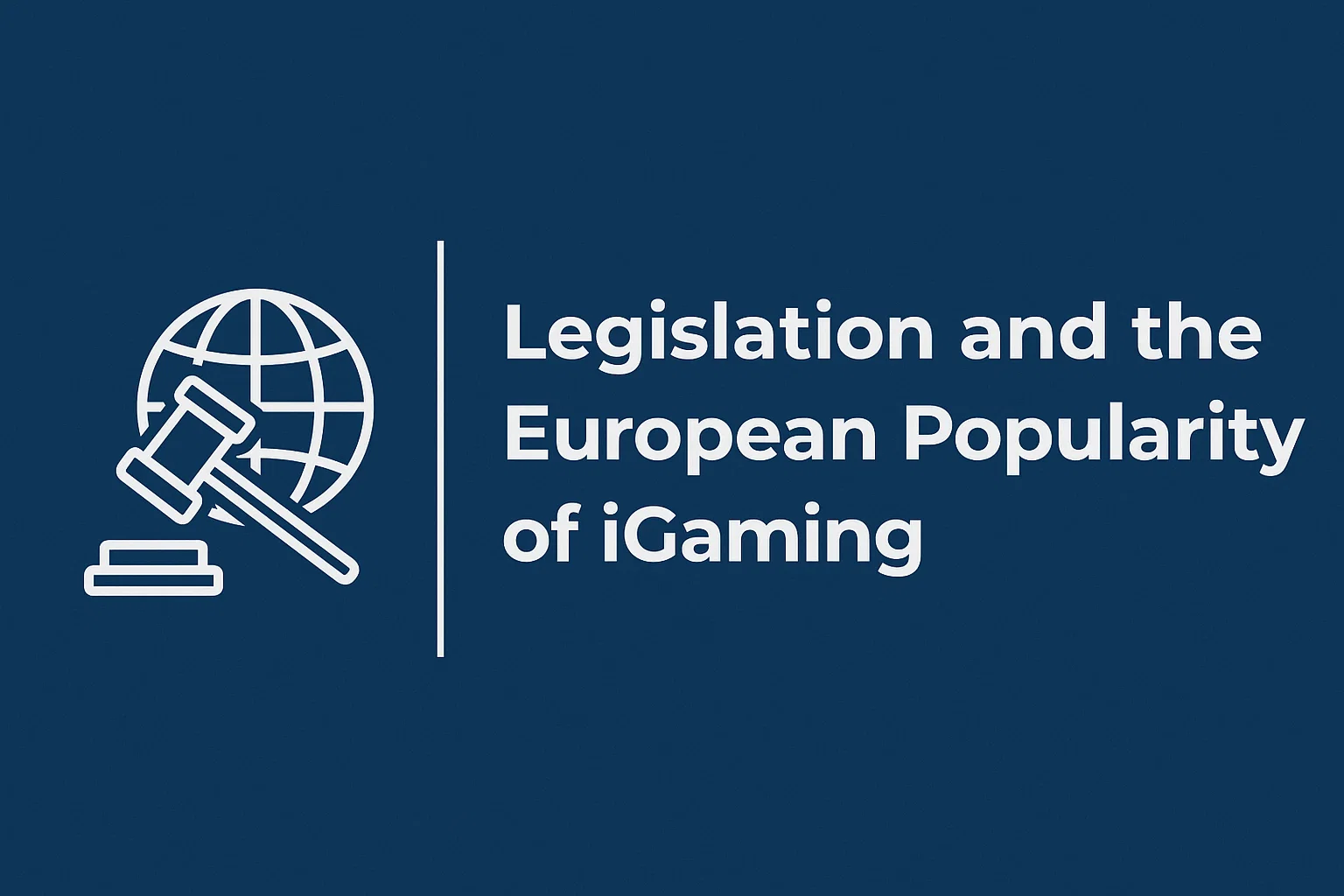Legislation and the European Popularity of iGaming

The internet gambling sector, or iGaming, has experienced unprecedented growth in Europe in recent years. Spurred by advances in technology and changing player trends, the business has developed into a multi-billion-euro industry. Every nation offers a unique mix of regulation and cultural attitudes, creating a vibrant, multicultural iGaming sector and best casinos. Among this mixture are operators that manage to navigate the evolving legal environment and gain advantage from the increasing popularity of the sector.
The United Kingdom: A Liberal Approach
The United Kingdom stands out as the exception in Europe with a very liberal attitude towards gambling. It had the continent's highest gross gaming revenue, thanks in part to its tightly regulated and matured iGaming market. UKGC is center stage in the regulation of operators, issuing licenses, and protecting customers. Despite recent changes aimed at adverts and affordability checks, the market remains open and innovative, with both domestic and international operators thriving.
Hungary: Liberalization and Expansion
Hungary has seen a dramatic shift in the regulation of iGaming, particularly online betting on sports and casino games. Previously under state monopoly, the market has been thrown open to international operators due to pressure from the European Union. The liberalization has created new opportunities for operators like Unibet, one of the first international brands to receive a license under the new regime. The law changes are a milestone for Hungary and indicate broader alignment with the free-market ideologies of the EU.
Finland: Harsher Laws But Growing Popularity
In contrast to more liberalized markets, Finland maintains tight controls on iGaming through two government-owned operators: Finsk Tipping (sports betting and lottery) and Finsk Rikstoto (horse racing). Foreign operators cannot advertise, and payment blocking is in place. However, in spite of these barriers, offshore platform popularity continues to increase. Finnish players continue to seek out alternatives through expanded game offerings and better bonuses, as an indication of the paradox between regulation and consumer demand.
Italy: A Flourishing Market Amid Regulatory Changes
Italy has one of Europe's biggest iGaming markets, with strong revenues in sports betting, poker, and online slots. However, its regulatory history has been unpredictable. Strict ad bans in the "Dignity Decree," sponsorship limits, and tightened tax and reporting requirements recently threatened Italy. Despite all that, the market continues to grow with optimistic mobile adoption and customer experience with online gaming.
Germany: Regulation with Complications
Germany's Interstate Treaty on Gambling (GlüNeuRStV) made nationwide online slots and poker legal. But the new legislation has complicated licensing processes, tight deposit caps, and obliged player verification processes. Critics say overregulation will drive players to unlicensed sites. Nonetheless, leading operators have moved into the market under the new system, and the long-term prospects are cautiously bright as the nation hones its approach.
The Netherlands: A Responsible Legalization
The Netherlands legalised online gambling through the Remote Gambling Act. Since then, the market has grown very fast, with Dutch regulators issuing more than a dozen licenses. The Kansspelautoriteit (KSA) has also been cracking down hard on unlawful providers and maintains tough player protection measures. With tighter advertisement regulation being brought in subsequently, legal iGaming is now readily accessible, and public awareness keeps increasing.
Looking Ahead
The European iGaming landscape is an interesting tapestry of legislation, reform, and growing popularity. From the UK's liberal model to Hungarian regulatory reforms and Norwegian reserve, each country reflects differing priorities and concerns. Countries like Germany and the Netherlands are still to formalize their legal framework, while more mature markets like Italy struggle to adapt to shifting political and consumer attitudes.
- In the wider context, Europe's continually changing iGaming landscape is proof of the interaction between regulation, innovation in technology, and demand from consumers.
- Operators have to balance EU directives, national laws, and growing demands for safe gambling practices.
- New technologies such as blockchain, live-streamed products, and AI personalization are also redefining the user experience.
To remain competitive, operators must embrace an agile spirit—constantly shifting strategies to ensure they keep pace with the needs of a digitally native player. This regulatory-driven, customer-centric philosophy will be critical to writing the next chapter of Europe's iGaming narrative—one in which growth is achieved through safety and sustainability in a more regulated yet opportunity-rich world.
